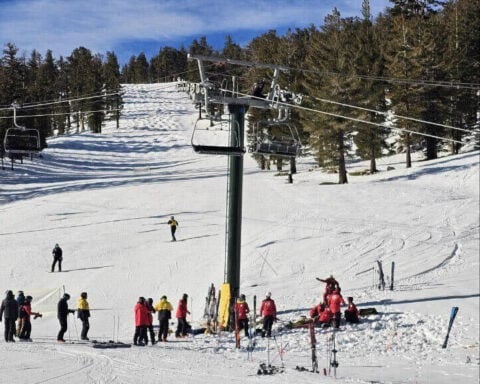The abuse of Ketamine, a deadly drug, has been rising at a scary pace after TV actor Matthew Perry's death. It is also being sold rapidly on the black market, raising concerns among health officials. Perry died from an overdose of ketamine, a substance that alters your perception and makes you hallucinate, meaning you might see or hear things that aren't there. His body was discovered in his hot tub. Perry played Chandler in the popular television comedy 'Friends'. The fact that he died of an overdose demonstrates the fatal nature of ketamine, especially if you don't talk to a doctor first before using it.
It was first produced in the 1960s and was used to aid sleep during surgery under anesthesia. Doctors trained in the use of ketamine in hospitals are very specific about the amount given to patients. But outside of the hospital, it's very easy to accidentally take too much ketamine. Your heart rate can drop so low that you can die and you can have difficulty breathing. This is very important: take ketamine only if your doctor has told you to.
Ketamine treatments can help someone with severe mental illnesses that are hard to treat feel better after a few sessions. In recent years, doctors have administered ketamine to patients suffering from PTSD, depression, and anxiety without using the drug's formal name. The FDA, or the Food and Drug Administration Agency in the United States, has not yet granted approval for the use of ketamine in the treatment of depression or other mental health issues. Prior to prescribing the medicine to patients, it is imperative to conduct additional research on its long-term safety.
Although ketamine does not have FDA approval for mental health purposes, its potential has generated significant interest and resulted in a booming industry. Many new private clinics have started popping up across the United States offering expensive intravenous (IV) ketamine infusions or take-home nasal spray prescriptions, often charging hundreds or thousands of dollars. Promoters market these paid ketamine treatments as a life-changing therapy, even though the long-term effects are still largely unknown.
Worryingly, as ketamine's popularity has grown, so has an illegal black market driven by people seeking the drug for its intense psychedelic, out-of-body high recreationally - not for any approved medical purpose. In fact, in October 2022, the FDA specifically warned about rampant black market ketamine products being dangerously mis-marketed and sold for unapproved, unproven psychiatric uses that could put people's health at severe risk.
According to the Gazette Extra, the autopsy of Matthew Perry showed he had levels of ketamine in his system similar to those used for full surgical anesthesia - a potentially fatal amount clearly obtained illegally since he did not have any actual surgery. While Perry had previously received some legal, supervised ketamine treatments prescribed for depression, his deadly overdose indicated he must have obtained that sky-high dose through black market dealers.
"These kinds of money-making drugs have just exploded with certain strata of society," said Dr. David Goodman-Meza, an addiction medicine expert at UCLA, referring to ketamine's surging illicit demand among wealthy users able to afford it. In a Gazette Extra article, he told the platform that using ketamine recreationally without a doctor's close oversight is "a recipe for disaster."
And disaster is exactly what resulted for Perry, whose accidental overdose of ketamine levels likely caused breathing to slow down until it stopped completely. But his is far from an isolated incident - U.S. border officials are catching rising numbers of smugglers trying to sneak thousands of pounds of black market ketamine across the border each year to meet growing demand.
Yet ketamine remains a challenging substance for law enforcement to crack down on compared to strictly illegal narcotics like heroin or meth. Since ketamine does have legitimate, approved medical uses, simply possessing it isn't automatically illegal, making it easier for shady dealers to traffic the drug under the radar.
Long-term ketamine abuse can also lead to serious, potentially permanent health issues beyond just overdose risks. These include bladder and kidney damage, memory problems, psychosis, and increased chances of becoming addicted and needing higher, more dangerous dosage levels to get high. So, while some legitimate medical studies have found ketamine can temporarily improve depression symptoms for some patients when used carefully, taking it without a doctor's close supervision poses grave safety risks.
Dr. Caleb Alexander told the outlet that "there is little data to support these uses, and it's a risky proposition to be using this drug willy-nilly," an epidemiologist at Johns Hopkins University, about ketamine's uncontrolled, unproven use for mental health conditions beyond anesthesia.
As the investigation continues into who supplied the lethal dose that killed Matthew Perry, his senseless death has undoubtedly raised crucial concerns over ketamine's booming underground popularity as a party favor among the rich and famous. With more celebrities openly discussing their recreational ketamine use despite risks, impressionable fans seeking a taste of that lifestyle are being enticed towards this unpredictable, potentially deadly substance circulating via criminal enterprises.
Peter Koshland, who runs a legitimate pharmacy providing regulated ketamine medications, worries unlicensed peddlers hoping to cash in could ruin ketamine's legitimate therapeutic promise if overdoses keep making headlines. He told TGL Law "Our fear is that regulators will move to take this amazing medicine away if they perceive a public health threat," he stated.
Regardless of ketamine's future, though, Matthew Perry's needless death serves as a powerful wake-up call about the clear and present dangers its widespread illicit abuse currently presents. Allowing a booming black market for untested, unregulated psychedelics like ketamine to continue proliferating uncontrolled could easily enable many more tragic overdoses and devastated families to come.

 Looting cripples food supply in Gaza despite Israeli pledge to tackle gangs, sources say
Looting cripples food supply in Gaza despite Israeli pledge to tackle gangs, sources say
 American Airlines lifts ground stop after unspecified technical issue
American Airlines lifts ground stop after unspecified technical issue
 A blast at a Turkish ammunition factory kills at least 12 people
A blast at a Turkish ammunition factory kills at least 12 people
 India's legendary filmmaker Shyam Benegal dies at age 90
India's legendary filmmaker Shyam Benegal dies at age 90
 How to track Santa Claus around the world with NORAD’s flight tracker
How to track Santa Claus around the world with NORAD’s flight tracker
 2024 NFL playoff picture: Who’s made it and who is still battling to reach the postseason after Week 16
2024 NFL playoff picture: Who’s made it and who is still battling to reach the postseason after Week 16








